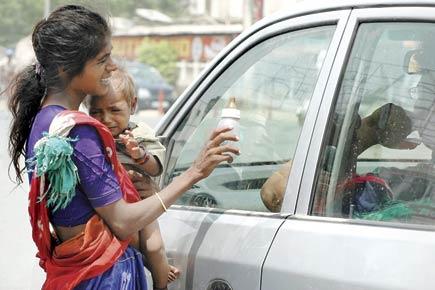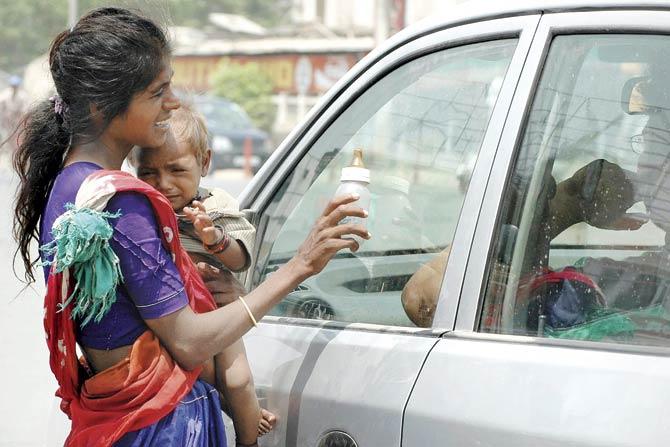There are fond memories that we cherish and nurse, often recalling them to relive memorable moments of our past

 There are fond memories that we cherish and nurse, often recalling them to relive memorable moments of our past. And there are bad memories that remind us of events we wish had never occurred, memories that we want to erase from our minds but more often than not are unable to do so.
There are fond memories that we cherish and nurse, often recalling them to relive memorable moments of our past. And there are bad memories that remind us of events we wish had never occurred, memories that we want to erase from our minds but more often than not are unable to do so.
Then there are bleak, haunting memories, not dissimilar to graphic audio-visual images, once black and white, now sepia-tinted, that cannot be erased even if we will ourselves into erasing them, and keep on surfacing, often at the most unexpected moments, disorienting us and leaving us feeling deeply melancholic.
ADVERTISEMENT

A woman begs for money in Amritsar to be able to buy milk for her child. Pic/AFP
Those faces and voices from the past just don’t, or won’t, fade away. They cruelly torment us, they remorselessly inflict pain and pitilessly cause agony, and then recede into the dark crevices of our mind, only to surface again.
This story is about memories that I cherish, and memories that I wish would bury themselves forever, never to surface again. There are many fond memories of summer holidays spent at my grandmother’s house in the suburbs of Kolkata that I have lovingly nursed for two score and ten years.
But rooted in those fond memories there’s an unhappy memory I would rather not carry with me; yet, no matter how hard I try to erase it, the once black-and-white and now sepia-tainted image of a young woman in a tattered and threadbare saree, carrying a rickety child, and a little girl with large eyes in a torn frock clutching to her mother’s rags with one hand and holding a battered and bruised aluminium bowl in another, remains indelible. It keeps on popping up just when I think I have been able to wipe it out forever, often when I am settling down for a meal at a table laden with food.
There was a dining table at my grandmother’s house which was kept in a sort of half-open room next to the kitchen that led to the garden and the narrow, black-painted iron gate, which was closed and locked only after nightfall, and the lane into which it opened.
If memory serves me right, it was the summer of 1972 and my cousins and I had just sat down for lunch — a sumptuous meal of bhaat, daal, begun bhaaja and maachher jhol — with my grandmother hovering over us and my aunts piling our plates high with food. Children were supposed to eat till they couldn’t swallow another morsel without throwing up.
Suddenly there was this woman at the gate, with the emaciated child and the little girl with large eyes. “Ma, fan daao ma!” It was a pitiful cry, not for food but for the starchy water that is poured out after boiling rice and thrown away. Those were hard days of shortage when food was rationed and there was never anything extra in the pot to be given away. The poor and the starving knew it was no use begging for food, so they asked for fan.
All this I gathered much later, but on that afternoon I was stunned by the sight of such stark poverty. Back home in Jamshedpur, which was a small, very small town those days, life was lived out in an orderly fashion; nobody was rich, but everybody lived well and hunger was unheard of, leave alone seen in so stark a manner.
My grandmother, a kind soul, I learned that afternoon, would keep the fan aside in a large brass bowl, to be given away to anybody who came asking for it. One of my aunts poured the fan into the aluminium bowl which the girl held out, clutching it with both hands so that it would not slip and fall. Another aunt asked the woman to come in and sit in the shade of the guava tree.
I watched, strangely fascinated, unable to take my eyes away, as the woman fed the girl and the child, by turn, and then with great care wiped the bowl with her fingers and licked them hungrily. The remnants were her meal.
I couldn’t eat a morsel that day. Not at lunch, nor at dinner. At night, as I tossed and turned in the sweltering summer heat — power cuts in West Bengal of the 1970s stretched for hours together — my grandmother tried to calm me with one of her stories about the life she had left behind in East Bengal. It didn’t work.
Two score and ten years later, the sight of savage poverty revives the memory of that afternoon in my grandmother’s house. There’s no one to tell me stories to distract my mind anymore. I try self-distraction, think of happier things, nicer sights, prettier pictures. But it doesn’t work.
The writer is a senior journalist based in the National Capital Region. His Twitter handle is @KanchanGupta
 Subscribe today by clicking the link and stay updated with the latest news!" Click here!
Subscribe today by clicking the link and stay updated with the latest news!" Click here!







